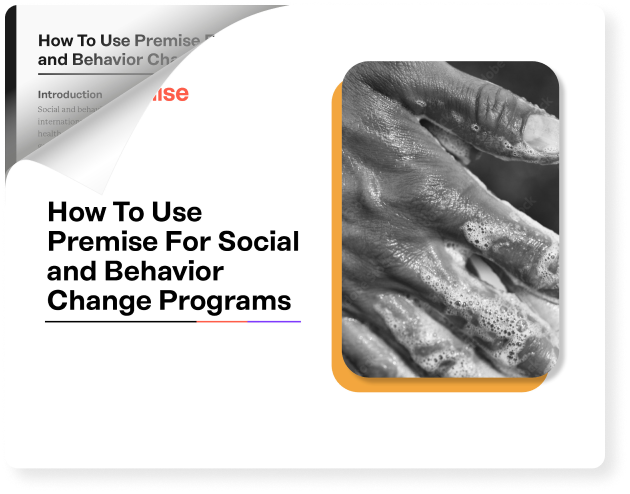How To Use Premise For Social and Behavior Change Programs
![]()
Effective social and behavior change (SBC) programs rely on robust data and evidence-based approaches to design, implement, and evaluate their activities. However, traditional data collection methods like in-depth interviews and focus groups can be time-consuming, resource-intensive, and may not always provide a complete or accurate picture of the on-the-ground situation.
Premise offers a more agile and responsive approach to data collection, enabling organizations to collect real-time data from a diverse and engaged Contributor network. This allows for more timely decision-making and ensures that SBC programs remain relevant and impactful in the face of changing circumstances.
Our guide, How To Use Premise For Social and Behavior Change Programs, covers the four primary ways in which Premise can be used to improve SBC programming and put audiences at the center of program design:
- Audience segmentation. Use Premise surveys to understand the target audience, their communities, and environments; identify barriers and facilitators to behavior change; and gain insights into factors influencing or inhibiting their decision-making processes.
- Messaging and content testing. Conduct A/B tests of different messaging concepts and media formats to optimize messages and ensure they resonate with the target audience.
- Performance measurement. Measure the performance of behavior change campaigns by asking survey respondents if they have seen or heard campaign messages and assessing program reach and effectiveness.
- Efficacy measurement. Evaluate the impact of SBC programs on attitudes, behaviors, and social norms by measuring changes over time.
By leveraging the platform’s capabilities, organizations can enhance their SBC programs, ensuring that they are evidence-based, data-driven, and responsive to the needs of the communities they serve.
Download the full PDF guide to learn more about how Premise can help you improve your SBC programs.
